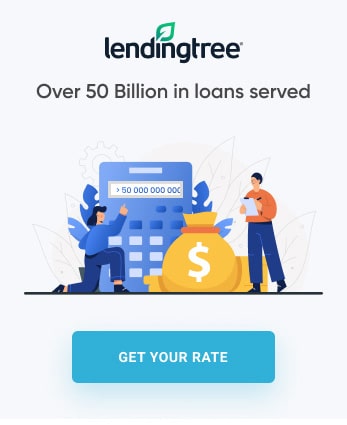Few personal finance products provide the flexibility and predictability of personal loans. As a result, personal loans enable borrowers to consolidate debt, build their credit, and manage their finances efficiently.
There are plenty of practical uses for personal loan funds, including financing major home renovations, paying for a big trip, or even lowering interest expenses when consolidating other debts.
Consumers educated on the potential benefits provided by personal loans can get ahead on their finances and manage their debts effectively.
However, there are some potential missteps and pitfalls that can occur with personal loan applicants if they are not aware of the terminology and loan agreements.
Issues ranging from overpaying on interest to damaging credit scores, but thankfully they can be avoided.
Today we will discuss how personal loans work, potential pitfalls, and most importantly, how to avoid them.
What Are Personal Loans?
A variety of banks, lenders, and credit unions offer personal loans as a flexible borrowing alternative to more expensive credit options.
Applicants have access to various terms starting with balances as low as $500 up to $100,000 depending on the lender and applicant’s creditworthiness.
Personal loans are usually unsecured and charge interest rates ranging from 5.99% up to 36.00% with terms from 3-72 months or more. Since there are so many options available, consumers have a wide range of loans to choose from so they can pick the terms that work best for them.
Applying for a personal loan is relatively straightforward since most banks and online lenders offer simple online applications that can be completed in minutes, and approved funds can sometimes be released on the same business day.
If you are shopping around for a personal loan, utilizing an online comparison tool may be beneficial because you can compare different terms and rates against each other in real-time. In addition, by using a comparison tool, you can quickly see your options and apply for the loans that suit you and your needs.
Pros Of Utilizing Personal Loans
Before we discuss some of the common pitfalls that can potentially occur with personal loans,
it’s important to understand why they exist, along with some of their most powerful benefits.
- Financial Flexibility
Consumers who need assistance consolidating high-interest debt or financing large projects can utilize personal loans in a variety of ways.
Many large home renovation projects can help a home’s value appreciate significantly, but they cost thousands of dollars out of pocket, which may put financial pressure on a budget. Personal loans enable homeowners to borrow enough money to complete the renovations with a predictable, fixed monthly payment.
Since the monthly payment and interest rates are fixed, the homeowner is able to budget effectively while simultaneously increasing the value of their home.
Revolving credit lines are another pain point for many consumers because they often carry high-interest rates, and the balance can keep increasing as they pay it down.
Personal loans can consolidate debt from a credit card and host other revolving debts into one loan with a fixed interest rate and payoff date. Taking out a personal loan to help get consumers back on track provides peace of mind because they can see when their debt will be paid off, and they can focus on budgeting for their other expenses.
- Build and Establish Credit
Personal loans impact credit scores since they increase overall balances owed and provide a unique credit line into their credit mix.
Consumers who have high credit scores can experience a credit boost by adding a unique credit line into their mix. In addition, consumers who are still establishing their credit histories can see a significant boost if they make their payments on time and pay off their balance.
- Quick Access To Extra Cash
Sometimes you may not need all of the funds from a personal loan at once, but having access to the cash if you need it can be very beneficial.
For example, suppose you experience a significant life event like changing jobs or moving a long distance. In that case, personal loans can provide a cash buffer for a lower interest rate than credit cards generally offer.
Utilizing personal funds with a lender who does not charge prepayment fees may be more predictable and affordable than depleting a savings account or charging your expenses to a credit card that may cost a lot more in interest.
Common Pitfalls
Now that we have discussed how personal loans work and how they can provide financial benefits, let’s discuss some potential pitfalls and how to avoid them. By understanding what can potentially go wrong, you can be prepared whenever you decide to take out a personal loan.
- Default Risk
One of the biggest risks in taking out any loan, whether it’s a mortgage, auto loan, or personal is defaulting on it and becoming unable to make payments.
Defaulting on a loan looks different depending on if the loan is secured or unsecured.
Secured loans are backed (secured) by collateral which the lender can seize to offset their loss due to a default. For example, defaulting on a mortgage can result in a bank foreclosing on a house, and an auto loan default can result in the lender seizing the vehicle until the payments are made.
Unsecured loans and credit lines do not have any collateral securing them, and as a result, the lender will charge higher interest rates to cover the risk they are taking in issuing the loan. In addition, when someone defaults on an unsecured loan, the bank or lender will report it to the credit bureaus, which can impact the ability to take out a loan in the future.
Default risk can be avoided by making sure you don’t miss the monthly payment.
Although that may seem like an obvious solution, there are many external factors that can dictate whether a borrower can pay their balance payment every month.
Before taking out a personal loan, ask yourself questions like:
- Can I afford the monthly payment, or should I borrow a lower amount?
- Am I able to set aside a couple of months worth of payments in case I incur an unexpected loss or expense?
- Am I comfortable automating my monthly payments, so I don’t incur a late fee due to a lapse in memory?
Working through these questions before you take out a personal loan can prevent a future default because you will better understand your budget and the future implications of your financial situation.
- Loan Balances May Not Be Sufficient For Financial Needs
Make sure that the lender can approve you for the amount of financing you need for your project or budget. There are many personal loan lenders on the market, and while they offer the same core product, their terms may range significantly.
If you accept a loan that is below your needs, you may have difficulty applying for another loan immediately afterward to make up the difference.
Instead of taking the first offer that comes your way, triple-check your plans and budget, so you are fairly certain of how much money you need before submitting a formal application.
Once you have your ideal loan amount, shop around to make a shortlist of lenders who can accommodate both your ideal balance and your current financial situation.
After you have your loan balance identified and a list of lenders who can most likely work with you, then you should consider submitting loan applications.
Following these steps can help prevent you from receiving an unsatisfactory loan and ultimately get you on the optimal financial standing.
- Penalties and Fees May Be High
Nobody likes paying fees and penalties when they can be avoided. As a result, some lenders pride themselves on their lack of fees, while others may have a litany of hidden fees in their term sheets.
Personal loans can have a few fees attached, such as origination fees, late payment fees, or prepayment fees.
While late payment fees can be avoided by making your payment on time, origination or closing fees may be quite costly if you don’t shop around.
You can potentially avoid a majority of fees if you do your research and shop around for reputable lenders who either waive fees or charge on the lower end of the spectrum for origination and closing fees.
Likewise, some lenders offer reimbursements for penalties if you make your payments within a certain window or do not charge prepayment fees at all.
- Monthly Payments Can Be Higher Than Alternative Financing
Personal loans provide a range of flexible terms and financing options for a variety of needs and projects.
However, they may not always provide the optimal monthly payments depending on what you are trying to finance.
Since personal loans are generally used to finance large purchases for more than three months, they may not be ideal for shorter-term purchases that may not require you to pay any interest at all.
For example, if you want to make a purchase that you are confident will be paid off in a couple of months, a credit card with a promotional 0% interest rate may have a lower monthly payment with the added advantage of avoiding interest altogether.
While a 0% interest alternative may not always be available, it pays to perform a thorough check of all your options before deciding on a personal loan.
- Potentially Impact Your Credit Score
New credit lines generally impact credit scores because they simultaneously increase your overall balance owed and tell the credit bureaus that they check your credit.
If you plan on applying for a new loan, make sure you are comfortable with your credit score because a new personal loan account will most likely have an impact.
- Interest Payments Can Be Expensive
Most personal loans charge interest which is the price paid to borrow money.
However, every lender has a unique underwriting process which means interest rates on a $3,000 loan can vary greatly. You do not want to be caught in a situation where you are paying substantially more interest than you are qualified for, so shopping and comparing different rates is essential.
Thankfully, online lenders offer plenty of comparison tools, and there are dedicated online brokerages that specialize in personal loans.
By utilizing these comparison tools and spending the extra time required to get a loan that works for you can pay off dramatically and ensure that you end up with an affordable loan.
Closing Remarks
Personal loans are powerful financial tools that can help you pay for a big project and consolidate debts.
However, before you apply for a personal loan, you should do as much research as you can to ensure you are getting rates you are comfortable with and a monthly payment you can afford.
If you want to learn more about personal loans, check out our extensive library of guides and reviews!
* This content is not provided by the financial institution or the offer’s provider. Any opinions, analyses, reviews or recommendations expressed here are those of the author’s alone, and does not constitute a financial or expert advice.







